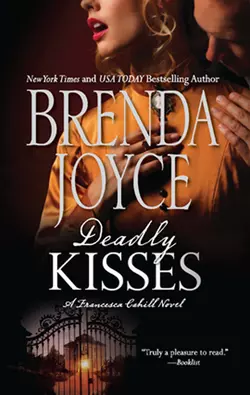Deadly Kisses

Бренда Джойс
Тип: электронная книга
Жанр: Современная зарубежная литература
Язык: на английском языке
Стоимость: 458.46 ₽
Статус: В продаже
Издательство: HarperCollins
Дата публикации: 16.04.2024
Отзывы: Пока нет Добавить отзыв
О книге: Called to the home of her fiance′s former mistress late one night, Francesca finds her curiosity piqued.But upon arrival, she is shocked to find Daisy Jones′s bloodied bodyand even more devastated when the evidence points to one suspect – her fiance, Calder. Francesca cannot – will not – believe that Calder is capable of such an act. Still, she is unable to shake her instinctive sense that Calder is lying about something .The police are far less inclined to believe his innocence, and Calder is arrested for Daisy′s murder. But Francesca′s heart is not easily swayeduntil a life-altering secret is exposed that could destroy their future together.